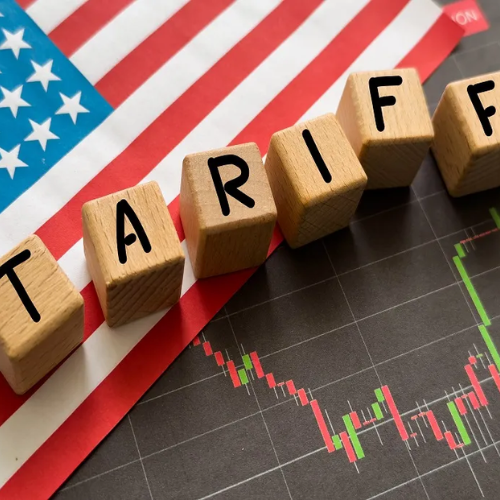A U.S. federal appeals court has ruled that President Donald Trump’s import taxes—commonly called tariffs—can remain in place for the time being. This decision came just one day after a lower court said that most of the tariffs were illegal and should be stopped.
Court Temporarily Blocks Tariff Reversal
The case began when small businesses and a group of U.S. states challenged President Trump’s sweeping trade measures. They argued that Trump had gone beyond his legal powers by imposing tariffs without Congress’s approval. The lower court agreed, ruling that the president could not use a 1977 emergency powers law to set broad tariffs on goods from around the world.
That court, known as the U.S. Court of International Trade, said that only Congress could approve such sweeping changes to trade rules. It specifically called out the use of the International Emergency Economic Powers Act, saying it did not give the president authority for blanket tariffs.
However, the appeals court has now granted a pause—or a temporary suspension—of that ruling, allowing the tariffs to stay in effect while the legal battle continues. The next court hearing is scheduled for June 5.
Trump’s Trade War Suffers Major Defeat as Court Rejects Tariff Powers
Tariffs Cover Key Trade Partners and Products
The tariffs put in place by President Trump affect a wide range of imported goods from countries like China, Mexico, and Canada. A flat 10% tax was introduced last month, on top of earlier increases targeting specific nations, including members of the European Union. Trump said the tariffs were needed to stop fentanyl smuggling and to protect American workers and industries.
Still, not all the tariffs are in question. Taxes on imports such as cars, steel, and aluminum—imposed under Section 232 of a different law, the Trade Expansion Act of 1962—are not affected by the ruling.
White House spokesperson Karoline Leavitt said in a press briefing that America’s trade talks must not be “railroaded by activist judges.” She emphasized that sensitive diplomacy requires flexibility and warned that court interference could threaten national interests.
The White House argued that courts should not second-guess the president’s foreign policy or economic decisions. “The political branches, not courts, make foreign policy and chart economic policy,” the Trump administration wrote in its court filing.
Meanwhile, former Trump trade adviser Peter Navarro told reporters that if the court blocks the tariffs, “we will do it another way.” He hinted that the administration is exploring other legal tools, such as Section 301 of the 1974 Trade Act, to reintroduce similar tariffs if necessary.
Legal Firestorm Draws Strong Reactions
Legal experts and business owners are watching the case closely. Ilya Somin, a lawyer who worked on the case against the tariffs, called the ruling a significant pushback against what he described as a “massive power grab.” He noted that judges from both Democratic and Republican backgrounds—one of whom was appointed by Trump—supported the lower court’s decision.
Trump’s Sanctions on WilmerHale Collapse Under Judicial Ruling
On the other side, Terry Haines, who runs the Washington-based policy group Pangaea Policy, said he believes courts will likely give President Trump the benefit of the doubt. He said courts are often cautious about limiting a president’s control over trade and foreign affairs.
The issue has had a real-world impact on businesses like Story Time Toys, based in Boston. Owner Kara Dyer, whose company imports toys made in China, said the rollercoaster of policy changes has made it nearly impossible to plan ahead. “I was incredibly happy and relieved [by the court ruling], but I’m also still very cautious,” she said.
In a separate case, federal Judge Rudolph Contreras also ruled that some of Trump’s tariffs overstepped his powers—but that ruling only applied to a toy company involved in that case.
According to trade expert Dmitry Grozoubinski, the legal back-and-forth has weakened Trump’s ability to use tariffs as a negotiating tool. He noted that other countries might not take tariff threats as seriously if courts keep limiting the president’s trade powers.
For now, though, the tariffs stay in place, and the U.S. continues to collect billions from taxes on foreign goods—while businesses, legal experts, and officials await the next chapter in this high-stakes legal battle.


